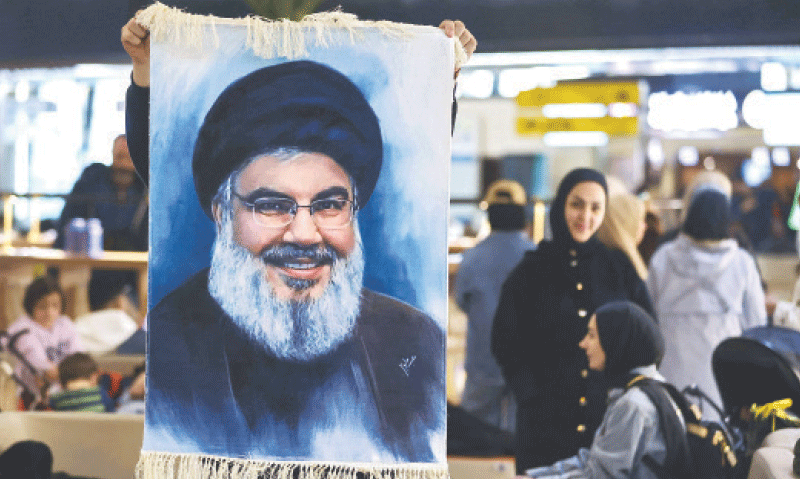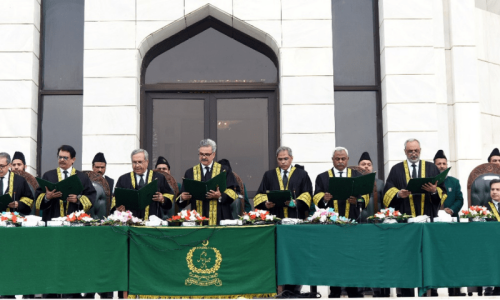JERUSALEM: Israel reopened an ultra-sensitive holy site on Sunday closed after an attack that killed two policemen, but Muslim worshippers were refusing to enter due to new security measures including metal detectors and cameras.
Crowds chanted “Allahu Akbar” (God is Greatest) as a number of initial visitors entered Jerusalem’s Haram al-Sharif compound, known to Jews as the Temple Mount.
The flashpoint holy site includes the Al Aqsa mosque and the Dome of the Rock.
Calls to prayer rang out from Al Aqsa, but dozens of Muslim worshippers held midday prayers outside the site in protest at the new security measures.
Around 150 people gathered outside for prayers later in the afternoon. Police said some 200 people entered the compound.
“We reject the changes imposed by the Israeli government,” Sheikh Omar Kiswani, Al Aqsa director, told reporters outside. “We will not enter through these metal detectors.”
Some women wailed and cried while telling people not to enter.
Waheeb Liftawi, 52, prayed inside Al Aqsa at midday without knowing of the calls to remain outside. During prayers later in the afternoon, he prayed outside.
“These things should not be put in front of a place of worship, a mosque,” he said. “This is why we refuse this or this will become the status quo.”
Later in the day, a funeral procession sought to enter with a coffin but was not allowed through. Police said on Sunday that so far two gates leading to the holy site had been opened, equipped with metal detectors.
Proposals to change security measures at the compound have sparked controversy in the past. A plan developed in 2015 between Israel and Jordan to install cameras at the site itself fell apart amid disagreement over how they would be operated.
The Haram al-Sharif/Temple Mount is central to the Israeli-Palestinian conflict, with Palestinians fearing Israel may one day seek to assert further control over it.
It is located in east Jerusalem, occupied by Israel in 1967 and later annexed in a move never recognised by the international community.
It is considered the third holiest site in Islam and the most sacred for Jews.
Jews are allowed to visit but not pray there to avoid provoking tensions.
Published in Dawn, July 17th, 2017














































